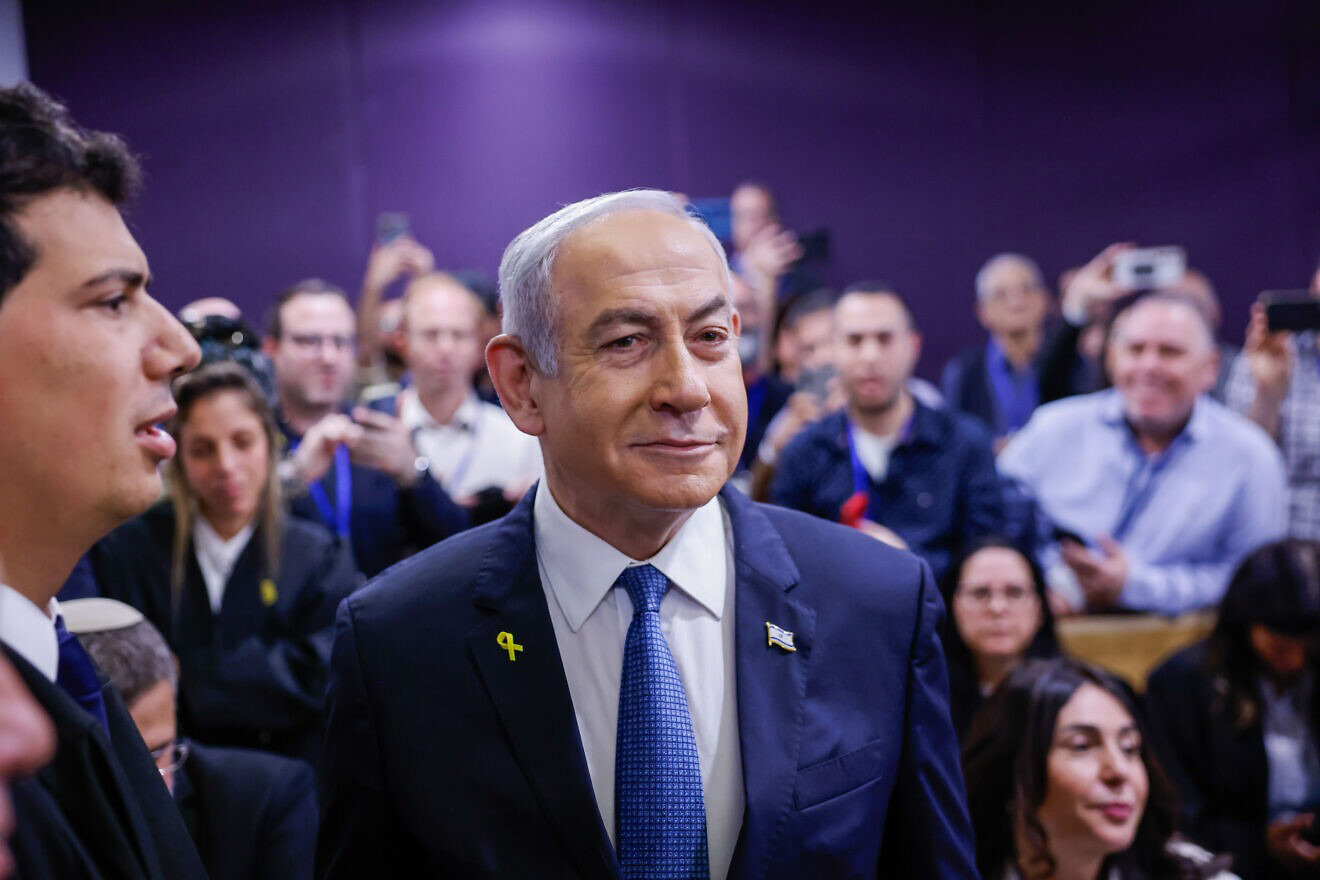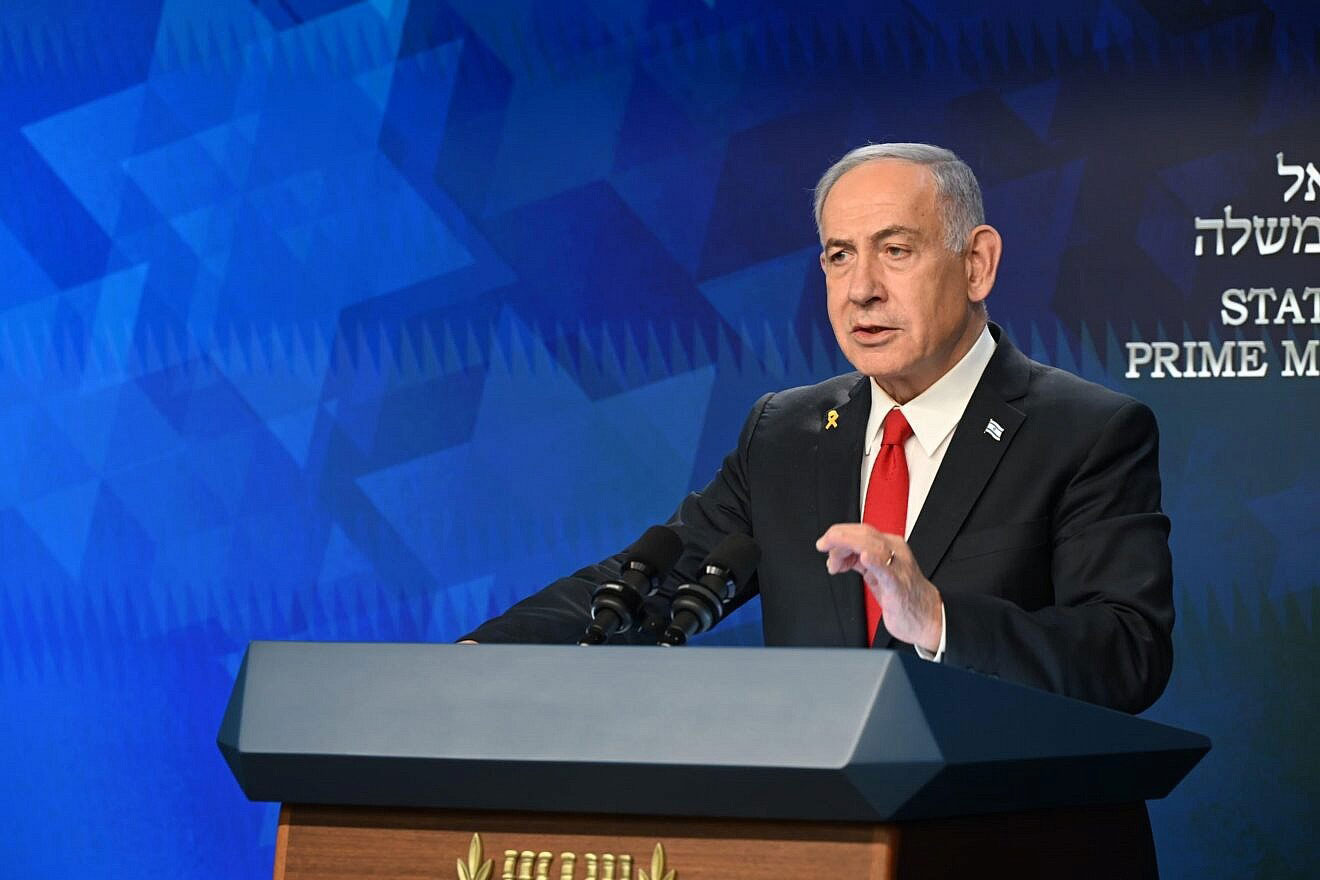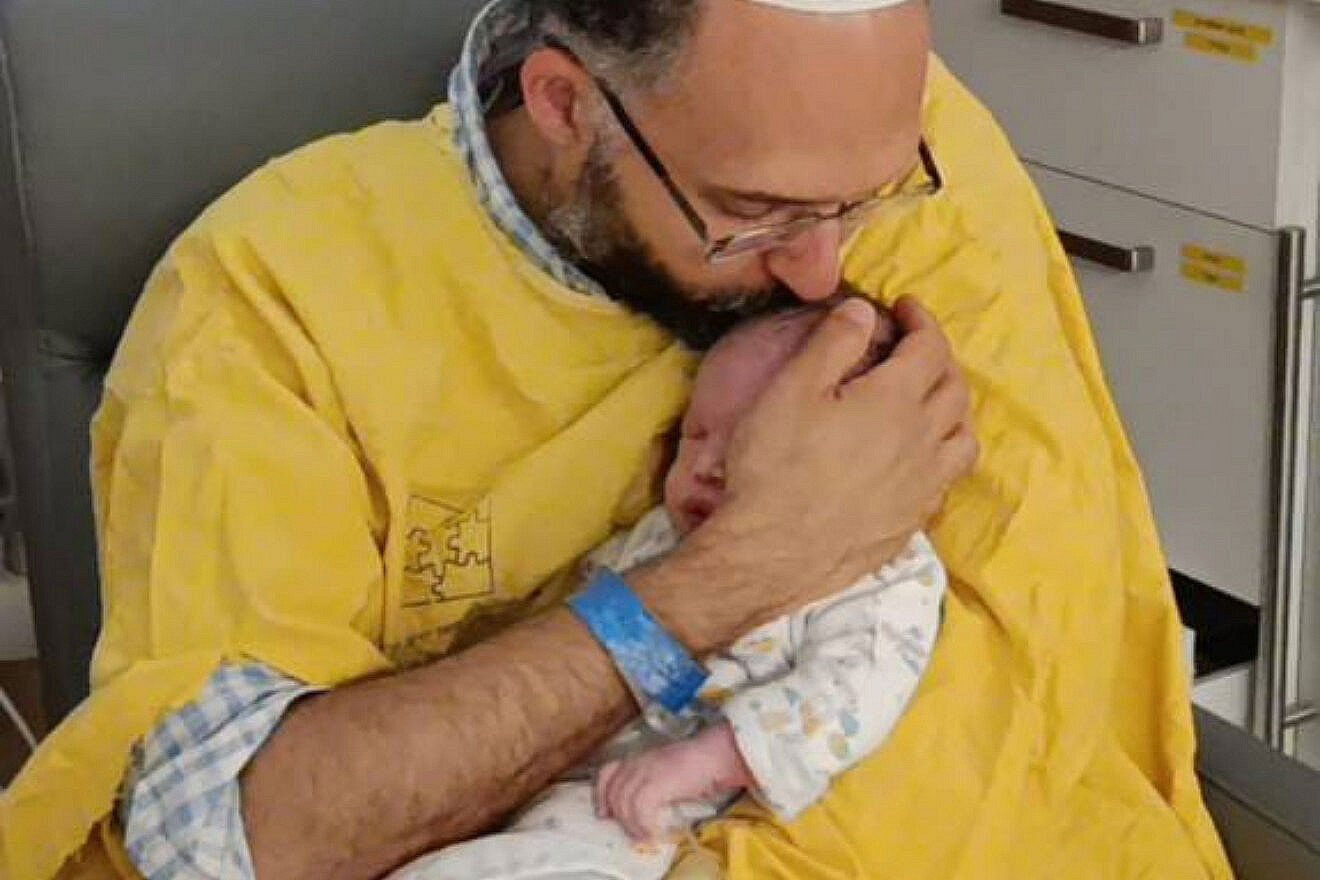Courtesy of JNS. Photo credit: Chaim Goldberg/Flash90
Israeli Prime Minister Benjamin Netanyahu arrives at the Tel Aviv District Court, Dec. 10, 2024
(JNS) — Israeli Prime Minister Benjamin Netanyahu began his testimony at the Tel Aviv District Court on Tuesday against corruption charges in three cases brought against him by prosecutors nearly five years ago.
Netanyahu, who has consistently denied the allegations against him and denounced the move as political persecution by judicial means, remained standing and did not sit down on the defendant’s bench until the proceedings began when photographing them was not allowed.
In his opening statement, Netanyahu focused on what he called the “absurdity” of the cases brought against him, and the timing of the trial, which coincides with Israel’s ongoing war against Hamas in Gaza, the Houthis in Yemen, its fragile ceasefire with Hezbollah in Lebanon and this week’s collapse of the dictatorship of Bashar Assad in Syria.
“I’m simply astonished by the magnitude of the absurdity. And, I must say, also the magnitude of the injustice. It’s an ocean of absurdity and I want to talk about it. I want to testify,” Netanyau said. But, he added, “I lead the State of Israel and the Israeli army on seven fronts” and “a few days ago, a tectonic thing happened here, an earthquake that hasn’t happened in a century — since the Sykes-Picot Agreement that determined the borders of the Middle East, and now it happened in one fell swoop. And this thing [in Syria] changes reality.”
Netanyahu’s lawyers have asked for several delays in his testimony, but the court rejected the latest, ordering him to appear three times a week for six hours each time.
It is the first time that a sitting Israeli prime minister has testified in a criminal trial against him.
Netanyahu is facing bribery and breach-of-trust charges in three cases, labeled 1000, 2000 and 4000. The latter is the most serious, and the only one featuring bribery charges.
The members of Netanyahu’s Likud Party, as well as its coalition partners and some opposition politicians, have dismissed the trial as a partisan attempt at government change by ex-parliamentary means. Opposition leaders have cited it as proof of Netanyahu’s alleged corruption and called on him to resign.
Knesset Speaker Amir Ohana of Likud was among Netanyahu’s supporters who showed up at the trial, along with National Security Minister Itamar Ben-Gvir, Transportation Minister Miri Regev, Environmental Protection Minister Idit Silman and Communications Minister Shlomo Karhi.
Netanyahu is enduring a “campaign of persecution against him,” Ben-Gvir told reporters outside the courthouse.
Netanyahu “is coming to the hearing today not as a defendant, but as an accuser. We are witnessing the collapse of the cases one by one, even before a single defense witness has taken the stand,” Karhi told reporters at the courthouse.
Justice Minister Yariv Levin issued a statement describing the ongoing legal proceedings against the premier, especially now, “when so much is placed on his shoulders,” as an “injustice.”
“Along with many, many citizens of Israel, I seek to strengthen you, Mr. Prime Minister,” his statement read. “I know that today, too, you will stand tall and present the simple truth as it is.”
Gilad Kariv, a Knesset lawmaker for Labor, condemned Ohana’s presence as inappropriate due to the latter’s parliamentary duties. Ohana’s “being part of the choir of sycophants is a new low in his undermining of [his] role,” Kariv wrote on social media.
Yair Golan, the leader of the Democrats Party, a left-wing alliance of Labor and Meretz, posted, “In response to his indictment, Benjamin Netanyahu launched a war against the State of Israel. From that moment, we were dragged into five election cycles, a deranged judicial coup that tore the nation apart and a massacre unprecedented since the establishment of Zionism. Every trick and tactic Netanyahu tried to avoid his trial has failed, and he will also fail in the trial itself.”
In case 4000, Netanyahu is accused of granting regulatory favors to the tune of NIS 1.8 billion ($500 million) to Bezeq Telecom Israel in exchange for allegedly positive media coverage of himself and his wife Sara on the Walla news site, which was controlled by Bezeq’s former chairman, Shaul Elovitch.
In June 2023, the judges advised the prosecution to drop the charges, citing “difficulties” in establishing guilt. The prosecution ignored the advice.
In Case 1000, Netanyahu is accused of receiving gifts to the tune of $196,000 from two billionaires, which prosecutors said broke the law. Netanyahu’s advocates have said the prosecution has not demonstrated any favors allegedly obtained by the givers.
The third case, considered the weakest of the three, has Netanyahu purportedly failing to decline an alleged offer by a newspaper publisher, Noni Mozes, to give him positive coverage if Netanyahu promotes a bill that was designed to weaken a competing newspaper.
Mozes was never charged with a criminal offense, leading Netanyahu’s advocates to challenge the legal basis of the case altogether. They also point to the absence of positive coverage, suggesting no illegal or inappropriate deal had been reached.
Amit Hadad, a lawyer representing Netanyahu, said in his opening statement, “This is Soviet-style, North Korea-style persecution. The prime minister has become the prosecution’s judicial guinea pig.”





